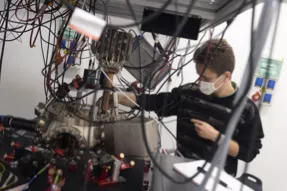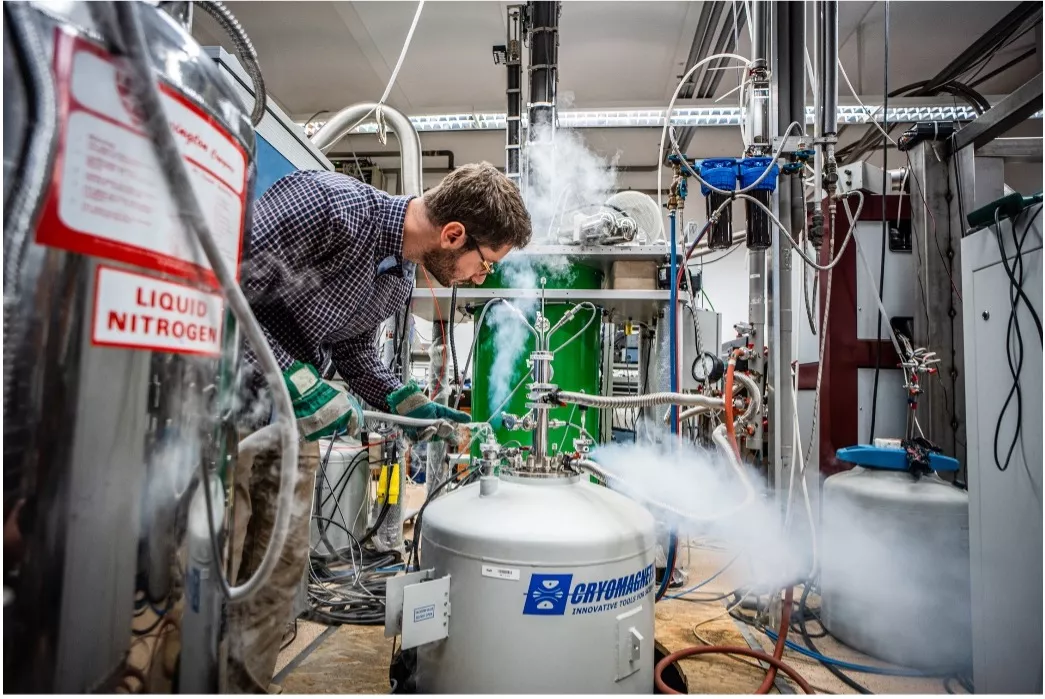The consortium led by Wigner RCP has been awarded nearly HUF 3.5 billion in funding for the development of the Quantum Information National Laboratory
The consortium led by the ELKH Wigner Research Centre for Physics (Wigner RCP) has been awarded nearly HUF 3.5 billion in funding from the National Research, Development and Innovation Office (NKFIH) for the development of the Quantum Information National Laboratory. Primary objectives of the project over the next three years are to set up a regional quantum communication network, implement the elementary building blocks of quantum information, and develop a local scientific community with cutting-edge knowledge in quantum computing and the competence to use quantum computing infrastructures. The consortium operating the national laboratory established in 2020 to consolidate domestic research in quantum information and quantum physics also includes the Budapest University of Technology and Economics (BME) and Eötvös Loránd University (ELTE).

Quantum Optics Laboratory at Wigner RCP
The rapid development of information technology has brought about significant changes to our lives in recent decades, and this process is currently progressing at an accelerated pace. One of the latest breakthroughs in this field involves the application of quantum technology in physical systems that are responsible for processing, storing, and transmitting information. By harnessing the unique quantum phenomena of superposition and entanglement as novel resources, it is possible to achieve significant qualitative improvements in communication, information, and computing technology.
This developmental phase, referred to as the second quantum revolution, presents new and previously unimaginable opportunities, as well as intellectual and technical challenges for the economy and society. Therefore, just as it is the case worldwide, close collaboration among the best Hungarian researchers and engineers is required to advance this field and realize its full potential. In the national research institutes and universities, a considerable number of internationally highly acknowledged research groups (cca 15-20) including the best scientists are active in various fields of quantum information. The Quantum Information National Laboratory integrates these human resources – physicists, engineers, computer scientists, mathematicians –, so that their activities can be better focused on certain specific, fast developing theoretical and applied topics of quantum information science. In the framework of the national laboratory, well-thought and well concerted developments can lead to a maximization of the significance and impact of Hungary in the rapidly unfolding broad horizon of quantum information.

Quantum Electronics Laboratory at BME
The strategic objectives of the Quantum Information National Laboratory for the next three years are:
I. Realization of a quantum communication network
Set up a regional quantum communication network to be joined to the European Quantum Communication Infrastructure (EuroQCI) planned by the EU Commission.
II. Elementary building blocks of quantum information
Develop hardware components based on photons, atoms, and artificial atoms for quantum information processing, and maintain the corresponding cutting-edge laboratory background.
III. Quantum computation and simulating quantum systems
Develop a local scientific community with cutting-edge knowledge in quantum computing and the competence to use quantum computing infrastructures.
The project will be implemented with the participation of approximately 80 experienced researchers, as well as around 50 doctoral and 60 university students involved in the research. Following the completion of the currently ongoing preparatory steps, substantive research and development work will begin shortly
More information on the Quantum Information National Laboratory can be found at their website.

